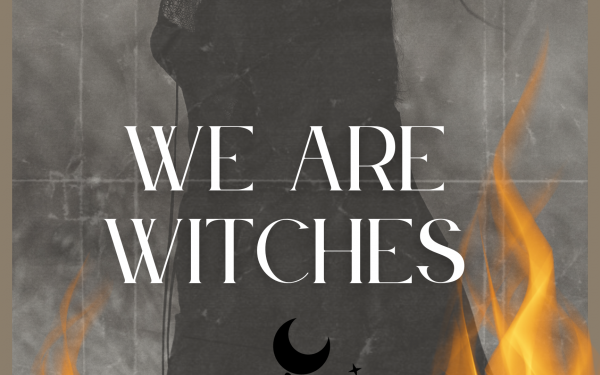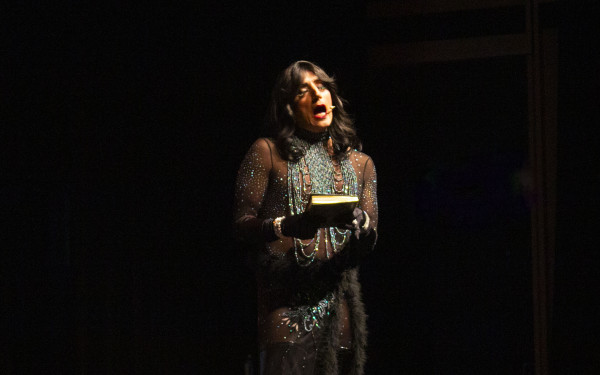Mizushobai: Revealing the unheard voices of Japanese women
A powerful theatrical narrative that shatters stereotypes
On Oct. 12, Mizushobai (The Water Trade) by Tableau D'Hôte Theatre—who are renowned for sharing the untold stories of Canadian history—premiered at Montreal's Segal Centre.
Directed by Yvette Nolan and written solely by playwright Julie Tamiko Manning, the production held profound significance, particularly for its all-female Japanese-Canadian cast and the wide range of themes explored.
“I wanted to show the diversity of the Nikkei (Japanese diaspora) female identity because we are not just one thing, we’re multiple things at the same time,” said Manning, who is Japanese-Canadian herself.
She shared the importance of visibility for different communities in theatre and the empowerment she has always felt when she gets to witness all-Asian casts on stage. “No one’s community should be defined by one story,” she said.
“Forgetting is, more often than not, a very deliberate choice as to what stories are worth remembering,” said Mathieu Murphy-Perron, artistic director of the theatre.
The title of the play, Mizushobai (The Water Trade), also doubles as the name for the brothels and clubs owned by the main character, whom the audience follows throughout her life. This name is a metaphor used in Japan, often describing jobs that provide income that is neither secure nor reliable, much like the ever-changing nature of water, as mentioned in the play.
As the lights dimmed and plunged the audience into complete darkness, heavy breathing awakened them to the story of Kiyoko Tanaka-Goto—artfully merging fiction with reality.
Manning provides a poignant yet humorous look into the largely untold history of Japanese women's struggles in Canada in the 1900s through her writing and extensive research on the real life of Kiyoko—a first-generation immigrant and a Japanese woman who defied all stereotypes associated with her.
Driven by the weight of her familial struggles, Kiyoko immigrated to British Columbia in the 1930s to reunite with her absent father and seek a better life for her family. However, the promised life abroad often falls short of expectations, leaving her to grapple with discrimination, objectification and personal challenges that echo in every chapter of her life.
The cast of five embodies the main character at various stages of her life—from the ages of four to 88—functioning as reflections of her past. "We are every facet of ourselves at every age and in every moment," Manning said, highlighting this artistic choice.
The playwright points out that Kiyoko's memory isn't consistently reliable, suggesting, “Perhaps her manipulation of the story is what she wanted to leave behind..” The thought highlights the human tendency to reshape our own stories as we age.
“You can keep on becoming new versions of yourself, that is also the meaning of the play,” — Yvette Nolan
In a poignant moment, as the lights casted a crimson glow and the room fell into silence, 88-year-old Kiyoko vividly recounted the heart-wrenching memory of a young Japanese girl's tragic passing in her brothel by a sexually transmitted disease.
She looked at her middle-aged self and asked, "Do you see how well I remember?" This gripping moment underscored the enduring strength of our memory, during moments that shape our lives.
On Feb. 25, 1942, the federal government of British Columbia invoked the War Measures Act to relocate Japanese Canadians living within 160 kilometers of the Pacific coast, which profoundly impacted many lives.
For Kiyoko, this meant being sent to jail for four years, a harsh consequence of the government's suspicions toward Japanese individuals during the Second World War.
A central theme in the play is the fetishization of Asian culture. The main character noted, "oriental was for show," shedding light on the objectification Japanese women faced. The character reclaimed the submissive and quiet role assigned to her with assertiveness and charming vulgarity—much like the real Kiyoko.
Her connection to her culture gradually faded throughout her life, leaving her with only one lingering memory of home: a distant hill where she once gathered fruits—a place she dreamed of reclaiming one day when she had earned enough money.
The play's finale featured Kiyoko’s introspection about the impermanence of life, with her earlier self standing proudly by her side. In this moment, she acknowledged how her life has frequently been influenced by the actions of men, those who have aspired to be the narrators of her story.
With unwavering determination, she proclaimed that while history has often neglected the stories of many women, she will not allow her own to be erased.
“You can keep on becoming new versions of yourself, that is also the meaning of the play,” added Nolan. Throughout her life, the main character bears different labels—Mama Kay, Ki, Kiyoko, Enemy Alien Kiyoko, Okiyo San—yet she always retained an identity separate from these titles.
During her encounter with the story of Kiyoko, Nolan was particularly struck by her ability to embrace her life despite hardships, noting the inclusion of excerpts from interviews with Kiyoko's voice in the production. “She was 80 years old and just cackling away, and it’s just so great to be so open to your own life,” Nolan said.
She expressed the essence of Kiyoko's story with the words, "Women have always been present, just not visible."
Mizushobai undeniably succeeded in presenting an authentic portrayal of the experiences of Japanese women in the 1900s in Canada.
“It's really important to take the stereotype of the Asian woman down from the pedestal to demystify these societal fetishes and prejudices,” said Manning. “Exploring how Kiyoko was a woman of power and intelligence, but also very flawed, is a really important step towards demystifying that image.”








